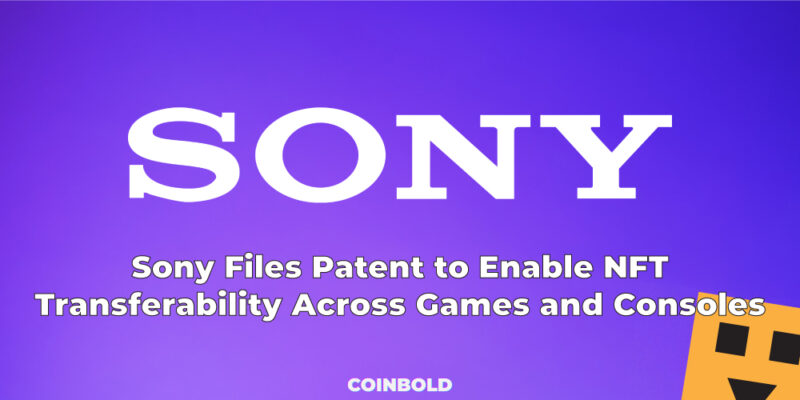Entertainment and gaming giant Sony has filed for a patent to make non-fungible tokens (NFTs) transferable and usable between various games, devices, and consoles.
The patent filed last week states:
“[T]hat the digital asset may be used, via the NFT, across plural different computer simulations and/or across plural different computer simulation platforms. Ownership of the NFT may also be subsequently transferred to other end-user entities for their own use across different simulations and/or platforms.”
In simple terms, this means that players would be able to transfer their in-game assets between various video game platforms and devices, including computers, smartphones, tablets, smart TVs, and VR/AR headsets, and even “cross-generationally, meaning from one PlayStation generation to the next.
The patent suggested that the assets could be transferable between different gaming ecosystems altogether, saying:
“The standardized format may be readable to insert the digital asset in different computer simulations that may include different video games of different titles [and/or] may be readable via different video game platforms such as, for example, PlayStation and Xbox.”
Outside the Sony ecosystem, the digital assets could potentially be used within “at least one computer simulation,” including “a cloud-based video game.”
Computer simulations may include different annual versions of a particular video game title, different video games of different game genres, and/or different execution instances of the same video game, it added.
The assets could include in-game skins, avatars, artwork, weapons, and “video game skills,” among other items.
The patent further discusses functions of recognizing specific attempts of fraud, when users try to gain NFTs and other in-game assets by repeating certain steps or tasks.
Not the first for Sony
Sony is not new to the NFT/metaverse/Web3 world.
In May 2021, Sony Interactive Entertainment published a patent filed back in 2019, which showed that the giant had patented its own eSports betting platform, allowing users to bet currency (including BTC) or digital items, with odds determined by machine learning.
In May last year, South Korea’s blockchain network operator Theta Labs (THETA) announced that the new 3D NFTs had been designed to be used with Sony’s Spatial Reality Display, a display unit that featured a high-speed vision sensor, which follows users’ eye movements to create 3Ds based on eye positions – with no eye-related accessories needed.
And in November, a patent filing revealed Sony’s vision for a system that could be used to track the creation, use, and transfer of NFTs as in-game assets.
Meanwhile, several other major mainstream companies also announced plans to expand into NFTs and cryptoassets over the past few months.
Investment giant Fidelity hinted at an intent to push deeper into cryptocurrencies and Web3 with three new trademarks filed in December last year.
And just this month, reports indicated that the tech giant Amazon was gearing up to launch its new initiative to enter the NFT and Web3 space.
Around fifteen collections are expected to be available to US residents from the launch date of March 24, under the “Amazon Digital Marketplace” tab.
Compiled by Coinbold


